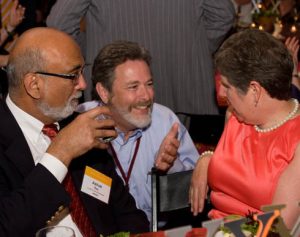 Synchronicity is real.
Synchronicity is real.
It’s always more rewarding when you discover that your thinking is in the same general vicinity as someone smart. Turns out Nancy Dixon has also been thinking about how to learn from experience. Her predictably excellent post focuses on pragmatic guidance on what it takes for an organization to be able to learn from its experience together with some very practical techniques to do so. Central to her analysis is the role of continuing conversation among peers and the importance of generative questions in those conversations.
Nancy’s advice is neutral with respect to what those conversations should be about, which was the thread I was trying to work out in my previous post.
The accelerating rate of change expands the focus of what you seek to extract from experience. We’ve grown accustomed to a simple equation that treats experience as templates or patterns to be copied onto new situations with minor tweaks and modifications. This is the world of startups seeking to be the “Uber of X†or the “Amazon of Y.†It is the world of countless copycats of Henry Ford all seeking to do what Ford did only better, faster, or cheaper.
The glib analysis of accelerating change is that experience is irrelevant to innovation. The Ubers and Amazons and Googles of the world all spring forth independently of prior experience. Stated baldly, this is nonsense. But it does leave us with figuring out how experience might play a role and brings us back to peer to peer conversations and generative questions.
My conjecture is that experience must be unpacked and fed into design processes that will lead to new processes and practices. The concrete particulars of experience will need to be actively abstracted into design principles and patterns. Experience then becomes the fuel that drives new innovations and practices.